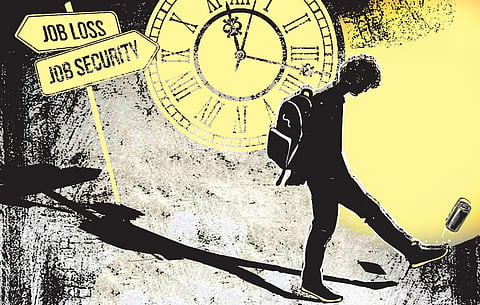

Why are many of us feeling so stressed out in life? If you are reading this column, the chances that you are financially well-off than most Indians are higher. You are also likely better off than your previous generation financially. At what age did your parents get their first vehicle and their first home?
Compared to them, the generation that followed had it relatively more straightforward. The opportunities that liberalisation threw up and the subsequent IT revolution ensured that a large population of the English-speaking, educated class were exposed to far better options and chances for achieving better financial security than the generations before that.
However, many studies show that millennials and Gen X are the most stressed-out generations compared to those born before 1965. Burnout is a term often associated with millennials (those born after 1981). Millennials and post-millennials are already complaining about total burnout and depression.
The demands of the modern workplace and educational institutions have gone beyond any sense of proportion. Exhaustion has become the most common word in our vocabulary. Many cite work and an unhelpful superior as the cause of immense stress in their lives.
The long working hours that Indian employers expect from their workers make it difficult for most to find a work-life balance. The commutation, pothole-filled roads, crowded public transport and crazy traffic that follows no rules, rhyme or reason add to unimaginable stress.
I give work-life balance coaching to many corporate executives and find a common complaint about the endless, meaningless meetings they are forced to attend. Most serve no purpose other than as a ritual that everyone is forced to do to give the impression of hard work.
A considerable part of productive time is spent not achieving anything but analysing imaginary scenarios and defending past things, leaving hardly any time to think, plan or execute the work. The same is true for students whose home assignments are irrelevant to anything they would be doing in real life. For that matter, most formal education itself has little relevance to the fast-changing world and will not be of any help by the time the new generations graduate.
The problem is exacerbated by the fact that there are no permanent jobs anymore. Rapid progress in Artificial Intelligence will act like a wrecking ball, destroying livelihoods in a trice and creating newer opportunities in its place, leaving many with outdated skills on the streets, unemployed and unemployable.
The migration to bigger cities is creating stress on infrastructure, adding to traffic woes, lack of public spaces and crowding everywhere, affecting the mental well-being of the residents. There is less family support in cities, less time for social networking and added pressure to look after the ageing parents left behind in the villages. It is not a happy situation.
Though many things need to be handled by individuals and job providers, there are things that the government can and should do at the earliest. First, there is a need to relook at the labour laws, not to make it easier for the big business to exploit more people and fatten their wealth, but as a means to take care of its young citizens’ health and future.
A study done in 2018 on vacation deprivation found that Indians are the people who take the least vacations—75 per cent are vacation-deprived. Indian work culture is punishing, and we feel guilty about even asking for leave for important personal matters. Many supervisors make their employees work on weekends and consider it a point of pride.
All this is ironic, considering we have a vast population and a severe unemployment problem. We can afford four-day work weeks with three days of weekly off. There is no need to close down offices and businesses which can work on a shift basis. Implementing a compulsory two-week paid vacation for every employee is necessary.
This may result in some dip in profit for the businesses in the short run. Still, it will ensure that the desperation and poverty of Indians are not exploited and the wealth is distributed better. In the long run, such extended weekends and vacations will do good for the economy by boosting the tourism, service and entertainment industry, improving mental health issues and ensuring better employment opportunities and distribution of wealth. It will also pressure the need for skill development as the demand for human resources will increase and raise the prevailing wages and, thus, the standard of living.
Anand Neelakantan
Author of Asura, Ajaya series, Vanara and Bahubali trilogy
mail@asura.co.in